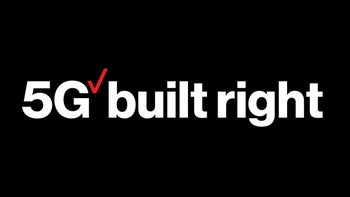Verizon essentially admits to being one step behind T-Mobile in the race to 5G ubiquity

While no one can predict exactly how the US wireless landscape will look 6, 12, or 18 months down the line, let alone two or three years from now, the radically different 5G rollout strategies adopted by the nation's largest mobile network operators all but guarantee the absence of a level playing field for a pretty long time to come.
Take Verizon's example. The number one wireless service provider stateside chose to play the mmWave card for the first round of the 5G battle royale, comfortably winning the speed contest while essentially forfeiting the coverage competition. Going forward, Big Red plans to continue betting big on this high-band horse, which T-Mobile has long derided as a losing long-term strategy.
But Verizon doesn't want to keep all its 5G eggs in one basket for long, aiming to implement a groundbreaking technology dubbed Dynamic Spectrum Sharing (DSS) in the near future to vastly expand the footprint of its high-speed network... while reducing said speeds.
This breakthrough will allow the market-leading carrier (and other carriers both in the US and other markets) to use the same spectrum bands for 4G LTE and 5G connectivity, "dynamically" adjusting the amount of spectrum available to each technology based on user needs evaluated in real time.
That may sound game-changing, but although Verizon's intention to challenge T-Mobile's impressive 5G availability numbers is definitely achievable using DSS, this will certainly not expand those mind-blowing mmWave speeds nationwide. Instead, Big Red merely plans to leverage Dynamic Spectrum Sharing to blanket the nation with 5G signal based on the operator's low-band spectrum.
As highlighted by CEO Hans Vestberg at a J.P. Morgan investor conference, this will produce "some improvements" in "the beginning" with an eye on enabling "dramatic improvements over time." In other words, Verizon wants to pull a T-Mobile roughly a year after the "Un-carrier" using a technology that looks promising on paper but hasn't quite developed smoothly so far, presenting various issues in early tests.
For its part, Magenta knows DSS "is going to happen" eventually, according to President of Technology Neville Ray, but unlike Verizon, "New T-Mobile" is "not dependent" on this technology, instead focusing its efforts on integrating valuable mid-band spectrum acquired from Sprint to upgrade the speeds of its remarkably widespread low-band 5G network.
Mum's the word, by the way, on when we should expect to see Verizon's 5G network hit the nationwide stage with "small" speed improvements over 4G LTE enabled by DSS technology on low-band spectrum. For what it's worth, Big Red's 4G LTE speeds are still pretty remarkable, even exceeding T-Mobile's average 5G numbers in many places.

















Things that are NOT allowed: